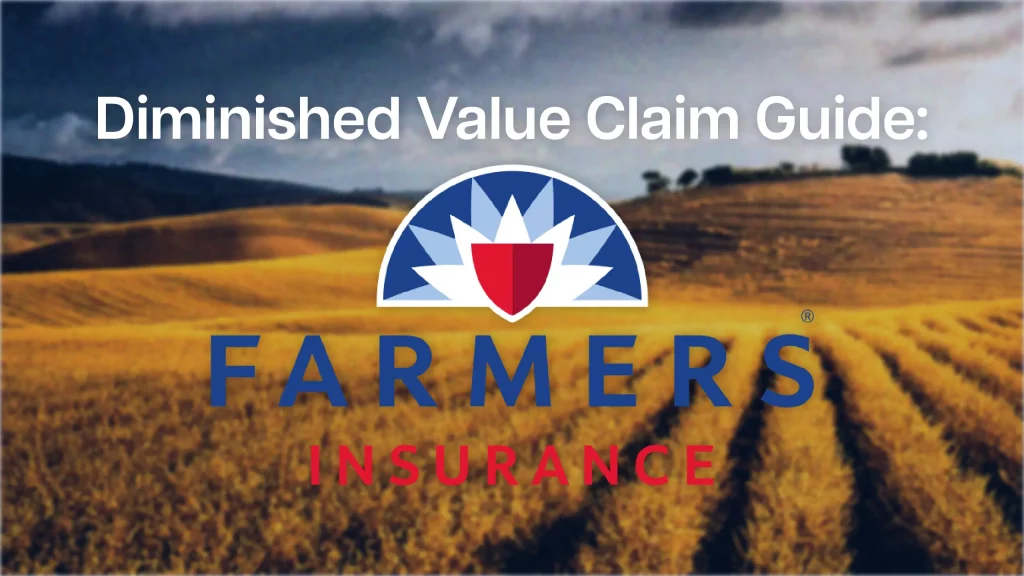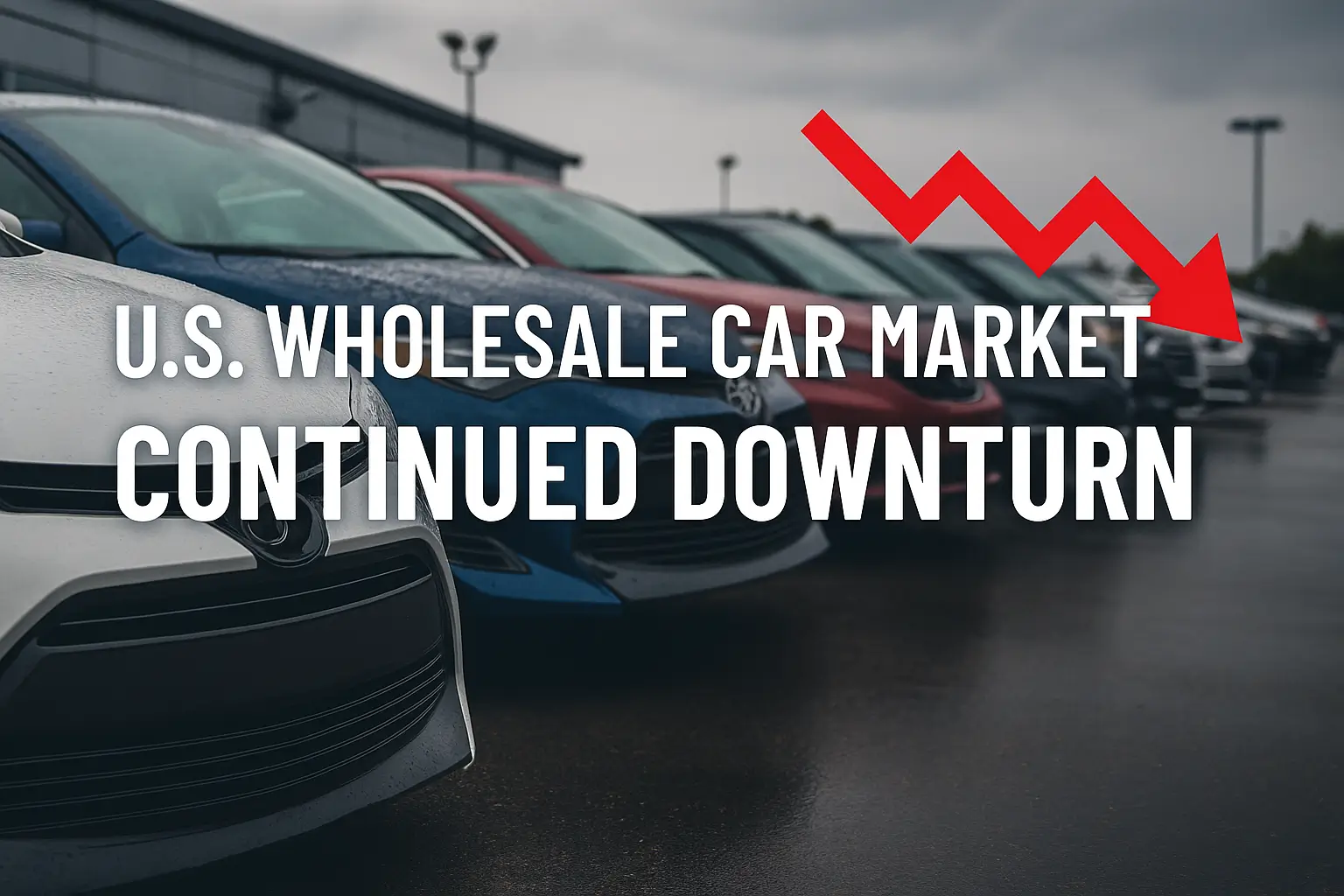
Maximize Your Diminished Value Claim Against Farmers Insurance
If you’re preparing to file a diminished value claim with Farmers Insurance, being strategic and well-prepared can make all the difference. Even after your vehicle has been repaired following an accident, it’s likely worth less than before due to its accident history. This loss in value—known as diminished value—is something you can seek compensation for, but navigating the claims process requires careful planning and documentation.
This guide will walk you through the steps of filing a diminished value claim with Farmers Insurance and offer expert tips to ensure you receive fair compensation.
1. Understand Diminished Value
Before filing a claim, it’s crucial to understand the different types of diminished value:
- Inherent Diminished Value: This is the most common type of claim in the U.S. and applies when your vehicle is repaired after an accident but still loses value due to its accident history.
- Repair-Related Diminished Value: This occurs when the repairs are subpar or incomplete, leaving visible signs of damage or affecting the vehicle’s performance.
- Immediate Diminished Value: This is the drop in value immediately after the accident but before any repairs have been made.
Farmers Insurance typically deals with inherent diminished value claims, so your focus should be on proving the loss in value based on the accident history, regardless of how well the repairs were done.
2. Check Your State’s Laws on Diminished Value Claims
Not every state allows diminished value claims, so it’s important to know whether your state permits these claims, particularly in cases where you were not at fault in the accident.
- Georgia, for example, is very favorable toward diminished value claims, making it easier for residents to file.
- Some states have restrictions or more complicated processes for filing these claims, so check your state’s specific regulations.
3. Gather Key Documentation
Successful claims with Farmers Insurance require solid documentation to support your case. Ensure you have the following ready:
- Accident report: Obtain a copy of the police or accident report.
- Repair invoices: Keep all receipts and documentation from the repair shop.
- Vehicle details: Document your car’s make, model, year, mileage, and pre-accident condition to show how much the vehicle has depreciated.
Having all this information readily available will strengthen your diminished value claim.
4. Hire an Independent Appraiser
One of the most critical steps in a diminished value claim is obtaining an independent appraisal. While Farmers Insurance may offer their own valuation, it’s often biased in their favor. An independent appraiser will provide a professional, unbiased estimate of your car’s diminished value.
Pro Tip: Farmers Insurance may use their own formulas, such as the 17c formula, to undervalue your claim. The 17c formula typically results in lowball offers, which is why an independent appraisal is crucial for fair compensation. Make sure the appraiser you hire specializes in diminished value claims and is certified.
Not sure if the insurance offer is fair? Get a Free Claim review from our experts!

5. Document the Pre-Accident Condition of Your Vehicle
To maximize your diminished value claim, be sure to document your vehicle’s pre-accident condition thoroughly. You should include:
- Photos showing the car in pristine condition before the accident.
- Maintenance records proving the car was well cared for.
- Any upgrades that added value to the vehicle, such as new tires or additional features.
This will help support your claim that your vehicle has lost significant value due to the accident, even after repairs.
6. Submit a Detailed Claim to Farmers Insurance
Once you’ve gathered your documents and independent appraisal, it’s time to file your claim with Farmers Insurance. Be sure to include:
- The independent appraisal report with a detailed explanation of the vehicle’s diminished value.
- Pre-accident photos and market value estimates from sources like Kelley Blue Book (KBB) or Edmunds.
- Repair receipts and a cover letter outlining the facts of the accident and your request for compensation.
Expert Tip: When submitting your claim, remain professional, clear, and concise. Be factual in your descriptions and avoid emotional language. Farmers Insurance may try to minimize the payout, so having organized and thorough documentation will give you a stronger case.
7. Be Prepared to Negotiate
Insurance companies like Farmers may not offer the full value of your diminished value claim right away. They could attempt to offer a low initial settlement in hopes you’ll accept less.
Here’s how to negotiate like a pro:
- Stay Firm: Don’t accept the first offer if it doesn’t match the diminished value determined by your independent appraiser.
- Use Documentation: Reference your appraisal, repair receipts, and vehicle condition documents during negotiations.
- Remain Calm: The claims process can be slow, and insurers might push back, but staying calm and persistent often leads to better results.
Pro Tip: If Farmers Insurance offers a lowball settlement, point out discrepancies between their valuation and your independent appraisal. This can help you make a stronger case for a higher payout.
8. Seek Legal Advice If Necessary
If Farmers Insurance refuses to offer a fair settlement after negotiations, consider seeking the assistance of a legal professional. An attorney who specializes in diminished value or insurance claims can help you:
- File a formal complaint with your state’s Department of Insurance.
- Take legal action if Farmers Insurance is acting in bad faith by undervaluing your claim or delaying the process.
In some cases, taking the claim to small claims court might be worth considering, depending on the amount in question and whether it’s financially viable for your situation.
9. Know Your Rights When Dealing with Farmers Insurance
Farmers Insurance, like any other insurer, has an obligation to handle your claim in good faith. They are required to process your claim fairly and in accordance with state laws.
If you believe that Farmers is not treating your claim fairly, you have options:
- File a complaint with your state’s Insurance Commissioner.
- Consult with a lawyer to explore your legal rights.
Remember, you are entitled to compensation for the loss in value caused by the accident, even after your vehicle has been fully repaired.
10. Total Loss Claims: When Farmers Insurance Declares Your Vehicle a Total Loss
In some cases, the damage to your vehicle may be so extensive that it is declared a total loss by Farmers Insurance. This means that repairing the vehicle would cost more than it’s worth. Here’s how to handle a total loss claim:
- Get an Independent Appraisal: Just like with diminished value, an independent appraiser can provide a fair market value for your car before the accident.
- Negotiate the Total Loss Settlement: Farmers Insurance will offer a payout based on the vehicle’s pre-accident market value, but you should ensure the offer is fair. Use market data from sources like Kelley Blue Book and Edmunds to support your negotiations.
- Submit Documentation: Just like with diminished value claims, provide documentation of your car’s pre-accident condition to maximize your payout.
Final Tips for Maximizing Your Diminished Value Claim with Farmers Insurance
- Hire an independent appraiser to get an unbiased valuation of your vehicle’s diminished value.
- Document everything, from pre-accident photos to repair receipts.
- Be patient and persistent when negotiating with Farmers Insurance, as they may attempt to offer less than your vehicle is worth.
- If necessary, seek legal advice to ensure your rights are protected and you receive the compensation you deserve.
Filing a diminished value claim with Farmers Insurance can be a challenging process, but by following these steps, you can maximize your chances of receiving fair compensation for your vehicle’s post-accident loss of value. Stay organized, be prepared to negotiate, and don’t settle for less than what your vehicle is truly worth.
Let me know if this structure works for you!



